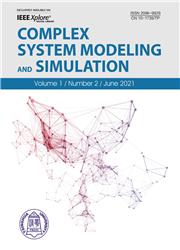Variable Reduction Strategy Integrated Variable Neighborhood Search and NSGA-II Hybrid Algorithm for Emergency Material Scheduling
引用次数: 0
Abstract
Developing a reasonable and efficient emergency material scheduling plan is of great significance to decreasing casualties and property losses. Real-world emergency material scheduling (EMS) problems are typically large-scale and possess complex constraints. An evolutionary algorithm (EA) is one of the effective methods for solving EMS problems. However, the existing EAs still face great challenges when dealing with large-scale EMS problems or EMS problems with equality constraints. To handle the above challenges, we apply the idea of a variable reduction strategy (VRS) to an EMS problem, which can accelerate the optimization process of the used EAs and obtain better solutions by simplifying the corresponding EMS problems. Firstly, we define an emergency material allocation and route scheduling model, and a variable neighborhood search and NSGA-II hybrid algorithm (VNS-NSGAII) is designed to solve the model. Secondly, we utilize VRS to simplify the proposed EMS model to enable a lower dimension and fewer equality constraints. Furthermore, we integrate VRS with VNS-NSGAII to solve the reduced EMS model. To prove the effectiveness of VRS on VNS-NSAGII, we construct two test cases, where one case is based on a multi-depot vehicle routing problem and the other case is combined with the initial 5·12 Wenchuan earthquake emergency material support situation. Experimental results show that VRS can improve the performance of the standard VNS-NSGAII, enabling better optimization efficiency and a higher-quality solution.应急物资调度的变约简策略——变邻域搜索和NSGA-II混合算法
制定合理、高效的应急物资调度计划对减少人员伤亡和财产损失具有重要意义。现实世界中的应急物资调度问题通常是大规模且具有复杂约束的问题。进化算法(EA)是求解EMS问题的有效方法之一。然而,现有的ea在处理大规模EMS问题或具有等式约束的EMS问题时仍然面临很大的挑战。为了应对上述挑战,我们将变量缩减策略(VRS)的思想应用到EMS问题中,通过简化相应的EMS问题,可以加快所使用ea的优化过程,并获得更好的解决方案。首先,我们定义了一个应急物资分配和路径调度模型,并设计了一种可变邻域搜索和NSGA-II混合算法(VNS-NSGAII)来求解该模型。其次,我们利用VRS对所提出的EMS模型进行简化,使其具有更低的维数和更少的等式约束。在此基础上,将VRS与VNS-NSGAII相结合,求解了简化后的EMS模型。为了证明VRS在VNS-NSAGII上的有效性,我们构建了两个测试用例,其中一个案例基于多车场车辆路线问题,另一个案例结合最初的5·12汶川地震应急物资保障情况。实验结果表明,VRS可以提高标准VNS-NSGAII的性能,实现更好的优化效率和更高质量的解。
本文章由计算机程序翻译,如有差异,请以英文原文为准。
求助全文
约1分钟内获得全文
求助全文

 求助内容:
求助内容: 应助结果提醒方式:
应助结果提醒方式:


